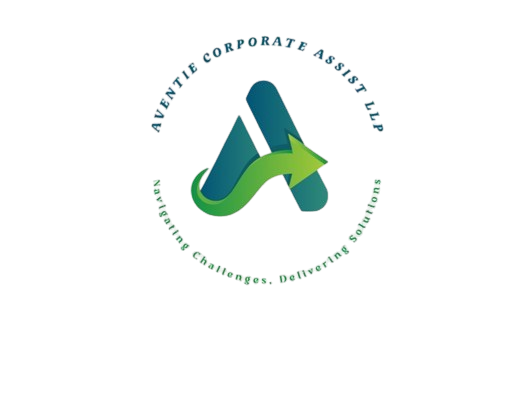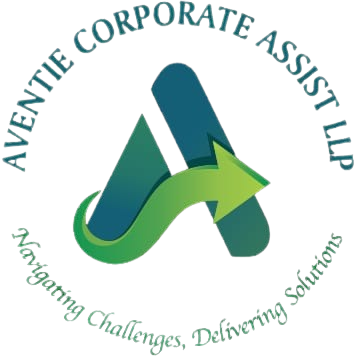Tax Laws and Compliances Services
Tax Laws and Compliances Services Chennai
- Personal tax & Corporate Tax
- Personal income tax workings & Filing
- Advance tax guidance
- Capital Gains Computation
- NRI Taxation
- Goods & Services Tax

Tax Laws and Compliances Services Chennai
India’s biggest tax reform is now a reality. A comprehensive Goods and Services Tax (GST) has replaced the complex multiple indirect tax structure from 1 July 2017. Make your business GST registered. Aventie Corp is the one, assists you with all types of GST compliance.
Income Tax Filing
ITR-1
Who should use ITR-1?
For Individuals being a Resident (other than Not Ordinarily Resident) having Total Income up to Rs. 50 lakhs, having Income from Salaries, One House Property, Other Sources (Interest etc) and Agricultural Income up to Rs. 5,000/- (not for an Individual who is either director in a company or has invested in Unlisted Equity Shares)
What is the due date for filing ITR-1?
ITR-1 must be filed by individuals and HUFs on or before 31st July of every year
Price starts from ₹ 3,000 (inclusive of GST)*
ITR-2
Who should use ITR-2?
For Individuals and HUFs not having income from profits and gains of business or profession
What is the due date for filing ITR-2?
ITR-2 must be filed by individuals and HUFs on or before 31st July of every year.
Price starts from ₹ 3,000 (inclusive of GST)
ITR-3
Who should use ITR-3?
For individuals and HUFs having income from profits and gains of business or profession
What is the due date for filing ITR-3?
ITR-3 must be filed by individuals and HUFs on or before 31st July of every year & businesses must file by 30th September of every year
Price starts from ₹ 3,000 (inclusive of GST)
ITR-4
Who should use ITR-4?
For Individuals, HUFs and Firms (other than LLP) being a Resident having Total Income up to Rs 5 Million (50 Lakhs) and having income from Business and Profession which is computed under sections 44AD, 44ADA or 44AE (Not for an Individual who is either director in a company or has invested in Unlisted Equity Shares)
What is the due date for filing ITR-4?
ITR-4 must be filed by individuals and HUFs on or before 31st July of every year & businesses must file by 30th September of every year
Price starts from ₹ 3,000 (inclusive of GST)
ITR-5
Who should use ITR-5?
For persons other than:
• Individual
• HUF
• Company and
• Person filing Form ITR-7
What is the due date for filing ITR-5?
ITR-5 must be filed by on or before 31st July of every year
Price starts from ₹ 3,000 (inclusive of GST)
ITR-6
Who should use ITR-6?
For Companies other than companies claiming exemption under section 11
What is the due date for filing ITR-6?
• Non – Transfer Pricing Cases – ITR-6 must be filed by on or before 30th September of every year
• Transfer Pricing Cases – ITR-6 must be filed by on or before 30th November of every year
Price starts from ₹ 5,000 (inclusive of GST)
ITR-7
Who should use ITR-7?
For persons including companies required to furnish return under sections 139(4A) or 139(4B) or 139(4C) or 139(4D)
What is the due date for filing ITR-7?
• Tax Audit Cases – ITR-7 must be filed by on or before 30th September of every year
• Non Tax Audit Cases – ITR-7 must be filed by on or before 31st July of every year
Price starts from ₹ 3,000 (inclusive of GST)
Other Filing
PF Return
What is EPF?
Employee Provident Fund is a defined benefit plan where employer and employee contribution is made after calculating the retirement benefits ahead of time.
Eligibility & Registration for EPF
Any entity that has 20 employees can obtain for Employer Identification Number (EIN Number), and in case the strength is less than 20, it can voluntarily apply for EIN. These employees include temporary workers, daily wage workers, security, housekeeping staff, contractors, temporary employees etc.
The entity must apply and receive the EPF registration certificate within 30 days of having a strength of 20 employees.
• Registration is mandatory for a factory with 20 employees or more
• Any other organization or establishment that is specified by the Central Government where it makes
compulsory to obtain PF registration even if the strength is less than 20
• Registered organizations continue under the purview of the Act irrespective of employee strength
• All co-operative societies continue to register themselves with a strength of more than 50 employees
Due Date for Filing PF Return: On or before 15th of the following month
ESI Return
• Employee State Insurance Corporation or ESIC is a self-financing social security and health insurance scheme which provides medical benefit, sickness benefit, maternity benefit and various other benefits such as funeral expenses, free supply of physical aids etc. to the employees and their family.
• Any factory or business establishment having 10 or more than 10 employees, irrespective of salary, have to register with ESIC. ESI contributions must be made for all employees having a salary of less than Rs. 21,000/- per month.
• Employees with less than Rs. 21,000/- monthly wages get health and sickness benefits through this statutory scheme.
• ESIC registration is a statutory responsibility of the employers of the factory. It is mandatory according to the rules and regulation of the ESI Act 1948.
Due Date for Filing ESI Return: On or before 15th of the following month.
TDS / TCS Return
What is quarterly e-TDS/TCS statement?
TDS / TCS returns filed in electronic form as per section 200(3) / 206C of Indian Income Tax Act, 1961, are quarterly TDS / TCS statements.
The forms used for quarterly e-TDS statements Forms are 24Q, 26Q and 27Q and for quarterly e-TCS statement is Form No. 27EQ. These statements filed electronically should be accompanied by a signed verification in Form No. 27A in case of both, e-TDS / TCS statements.
Who is required to file e-TDS/TCS statements?
As per Income Tax Act, 1961, all corporate and government deductors/collectors are compulsorily required to file their TDS/TCS statements in electronic form i.e. e-TDS/TCS returns. However, deductors/collectors other than corporate/government can file either in physical or in electronic form.

